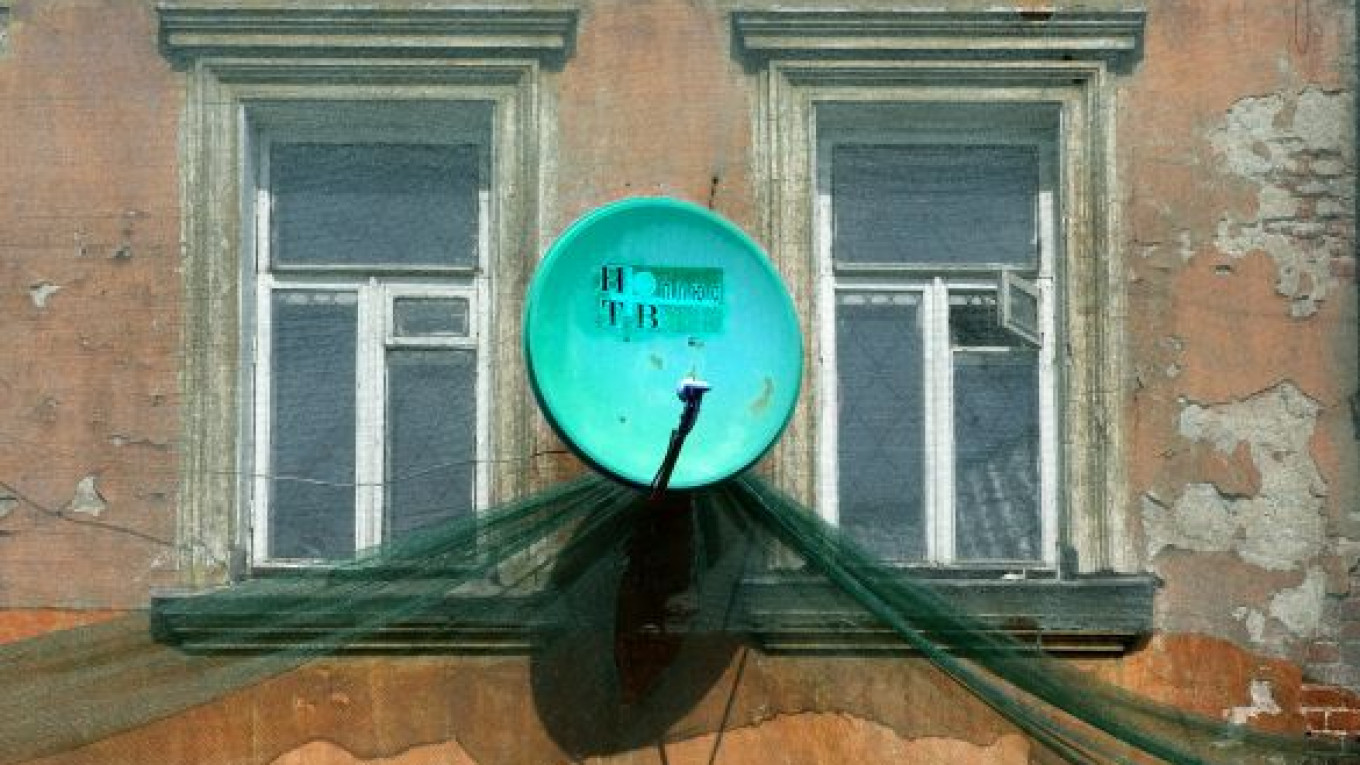Pay television executives have predicted that the industry will remain modest as many households are unwilling to accept bills for the service.
A major obstacle is costs. Worldwide, paid television service is significantly cheaper than cell phone use, but in Russia the situation is the opposite, Andrei Semerikov, chief of ER-Telekom Holding, a major regional Internet broadcasting and cable operator, said Tuesday at a round-table discussion.
Although 20 million Russian households, almost half of all families, pay for their television viewing, many other viewers are unwilling to do so, said the round table's moderator, IKS Consulting analyst Konstantin Ankilov.
Dmitry Bagdasaryan, deputy chief of cable provider Comstar Regions, said the cable audience in Russia was small compared with other East European countries.
Bagdasaryan attributed the slow market growth in Russia to a "mental barrier." People "are used to free television," he said at the event.
The cable ad market is worth 14 billion rubles ($470 million), Bagdasaryan said. That sum is only a quarter of over-the-air ad income, and its small size is another impediment to growth.
The share of subscriptions in the revenue structure rose from 40 percent in 2002 to 45 percent in 2009, with a corresponding decrease in ad revenue, he said.
Vladimir Shevardenidze, deputy chief of Red Media, a producer of television niche content for cable and satellite, said the average television viewer in Russia had 17 channels to choose from.
Russian cable viewers may watch up to 260 channels, but Europeans can have up to 8,600, he said.
Digitalization will create many new channels and greater ad income, Shevardenidze said, but it also raises new issues related to where to obtain content and whether channels will make or buy it.
The government is planning for television to go completely digital in 2015. Under Russian law, eight channels must be provided for free in any format.
Lyudmila Mikhailina, chief of state satellite operator Kosmicheskaya Svyaz, said satellite transmission will play a large role in the development of the television industry because of the inaccessibility of many areas of the country to other forms of delivery.
Satellite television capacity, now critically low, will be greatly increased in 2012 with the launch of three new units for digital television. HDTV is available from one of the three existing services and plans are afoot for 3D-TV, she said.
Ksenia Achkasova, deputy director for television at the TNS Russia market research company, said digitalization was making new equipment necessary for audience monitoring.
Alternative viewing, such as over mobile devices, from remote locations — such as watching sports events in bars — or in prerecorded form, is also a challenge to the monitoring industry, she said.
Russia lags behind other countries in terms of monitoring techniques, but it is expected to catch up by 2012, she said.
Olga Vorobyova, head of the legal department of NTV Plus, a satellite television operator, said the legislation regulating the industry's activities was in confusion. There are no clear definitions of concepts such as "broadcaster" and "operator," she said, a circumstance that complicates the already difficult licensing process. In addition, changes to laws on the media and advertising will be needed during the transition to fully digital television.
A Message from The Moscow Times:
Dear readers,
We are facing unprecedented challenges. Russia's Prosecutor General's Office has designated The Moscow Times as an "undesirable" organization, criminalizing our work and putting our staff at risk of prosecution. This follows our earlier unjust labeling as a "foreign agent."
These actions are direct attempts to silence independent journalism in Russia. The authorities claim our work "discredits the decisions of the Russian leadership." We see things differently: we strive to provide accurate, unbiased reporting on Russia.
We, the journalists of The Moscow Times, refuse to be silenced. But to continue our work, we need your help.
Your support, no matter how small, makes a world of difference. If you can, please support us monthly starting from just $2. It's quick to set up, and every contribution makes a significant impact.
By supporting The Moscow Times, you're defending open, independent journalism in the face of repression. Thank you for standing with us.
Remind me later.


